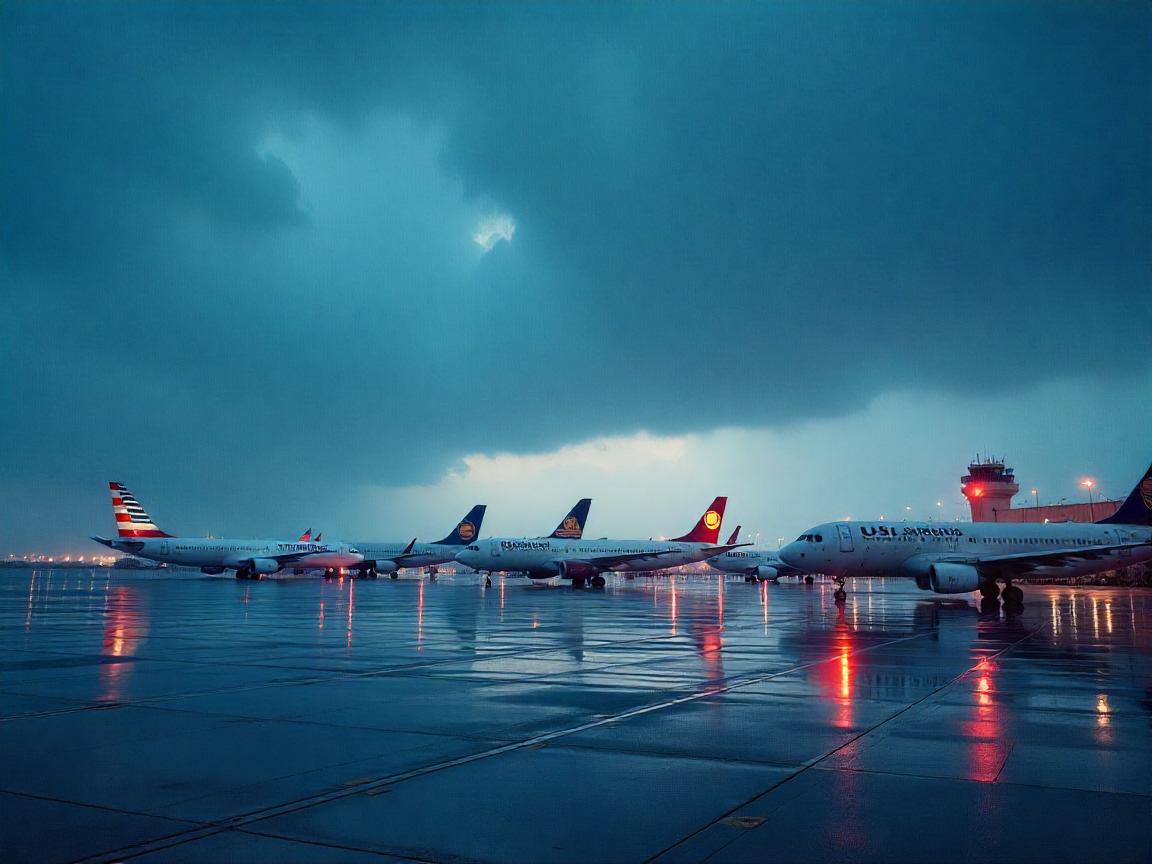Răspunsurile companiilor aeriene la scăderea cererii
Sectorul aviației din Statele Unite se confruntă în prezent cu o scădere semnificativă a numărului de rezervări de pasageri, determinând companiile aeriene să își modifice substanțial operațiunile. Pentru a atenua pierderile financiare, multe companii reduc rutele și își reduc previziunile financiare. Controlul costurilor este esențial pentru menținerea marjelor de profit, în condițiile în care companiile aeriene sunt împinse la limită în contextul acestor schimbări. Pe măsură ce producătorii de avioane și de motoare încep să transfere costurile asociate tarifelor, companiile aeriene se împotrivesc creșterii tarifelor, temându-se că o nouă creștere a prețurilor ar putea descuraja călătorii deja precauți. De fapt, multe companii aeriene iau în considerare măsuri drastice, cum ar fi returnarea aeronavelor închiriate sau amânarea livrărilor de aeronave pentru a gestiona aceste poveri financiare.
Lobby pentru scutiri de taxe vamale
În aceste vremuri dificile, industria aeronautică din SUA a apelat la sprijinul oficialilor guvernamentali, solicitând scutiri de la tarifele care au dus la creșterea costurilor operaționale. Reprezentanții industriei s-au angajat în discuții cu membri-cheie ai administrației pentru a încerca să obțină restabilirea statutului de scutire de taxe vamale care a fost stabilit în temeiul acordurilor anterioare, în special al Acordului privind aeronavele civile din 1979. Acest acord anterior a adus beneficii semnificative industriei, ducând la un excedent comercial anual de $75 miliarde. Impunerea tarifelor recente a anulat, din nefericire, statutul de scutire de taxe vamale pe care sectorul l-a avut timp de decenii, lăsând companiile aeriene să se confrunte cu creșterea costurilor operaționale într-un moment în care cererea consumatorilor este încă în curs de redresare.
Impactul și previziunile economice
Se preconizează că scutirile ar putea ajuta companiile aviatice să gestioneze eficient cheltuielile în această perioadă marcată de scăderea cheltuielilor de consum. Companiile aeriene au fost proactive în abordarea realităților legate de scăderea cererii; previziunile financiare sunt revizuite și sunt puse în aplicare măsuri pentru îmbunătățirea controlului costurilor. Repercusiunile sunt semnificative, deoarece creșterea prețurilor aeronavelor și ale pieselor de schimb continuă să îngrijoreze directorii companiilor aeriene, care subliniază că plata tarifelor pentru avioanele noi nu se aliniază strategiilor lor de supraviețuire economică.
Efecte asupra furnizorilor de aeronave
Furnizorii de aeronave sunt, de asemenea, confruntați cu implicațiile tarifelor, deoarece multe companii din cadrul ecosistemului aviatic, inclusiv Boeing și GE Aerospace, și-au exprimat îngrijorarea cu privire la propriile structuri de costuri în lumina tarifelor. Boeing a preconizat un impact relativ minor, estimând expunerea sa la tarife la mai puțin de $500 milioane anual. Pe de altă parte, GE Aerospace s-ar putea confrunta cu costuri suplimentare de peste $500 milioane, în timp ce RTX anticipează ramificații financiare chiar mai mari, totalizând aproximativ $850 milioane anual. Aceste cheltuieli neașteptate generează tensiuni între producători și companiile lor aeriene cliente.
Ajustări ale companiilor aeriene pentru menținerea competitivității
Având în vedere previziunile care indică o reducere a plecărilor în America de Nord, aceste ajustări nu sunt doar incidente izolate. Companiile de aviație s-au angajat să își rafineze strategiile pentru a asigura un avantaj competitiv în ciuda creșterii costurilor. Directorul general al GE Aerospace a avertizat deja companiile aeriene împotriva amânării livrărilor de aeronave, indicând că există alternative disponibile în cazul în care acestea aleg să renunțe la angajamentele lor. De exemplu, American Airlines are planuri pentru livrarea de avioane suplimentare de la producători europeni precum Airbus și companii braziliene precum Embraer, care ar putea fi, de asemenea, afectate de tarifele la livrări.
Stadiul actual și perspective de viitor
Un model surprinzător a apărut în mijlocul acestei turbulențe: tarifele companiilor aeriene au înregistrat o scădere notabilă în martie - cea mai accentuată scădere din septembrie 2021. Această reducere a prețurilor este parțial o mișcare strategică de stimulare a cererii, dar reflectă, de asemenea, provocările companiilor aeriene în ceea ce privește menținerea puterii de stabilire a prețurilor atunci când încrederea consumatorilor și dorințele de călătorie sunt încă șubrede. În plus, tendințele indică o reticență generală a clienților de a accepta creșteri ale tarifelor determinate de tarife, ceea ce ar putea complica și mai mult proiecțiile de rentabilitate.
Concluzie: Navigarea pe cerul turbulent al industriei aviatice
Pe măsură ce industria aviatică navighează prin aceste vremuri tulburi, nevoia unui angajament eficient cu organismele guvernamentale și cu mecanismele de control al costurilor devine din ce în ce mai evidentă. Posibilitățile de scutire de taxe vamale reprezintă o rază de speranță, care ar putea modifica în mod semnificativ peisajul pentru companiile aeriene care încearcă să mențină fezabilitatea operațională pe fondul fluctuației cererii și al creșterii costurilor.
Chiar și cele mai ample recenzii și feedback bine intenționat nu pot oferi o imagine reală în comparație cu experiența directă. Pe GetTransfer, călătorii pot explora opțiuni personalizate pentru închirierea de mașini cu șofer, provenite de la companii verificate, asigurând accesibilitate și confort neprețuit, fără costuri ascunse. Platforma oferă numeroase opțiuni de vehicule și caracteristici suplimentare adaptate pentru fiecare tip de călător, consolidându-și angajamentul față de transparență și satisfacția utilizatorilor. Experimentați ușurința de a călători cu doar un clic. Începeți astăzi să vă planificați următoarea aventură și rezervați-vă călătoria cu GetTransfer.com.



Observații